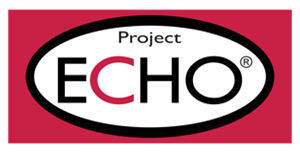
The Alzheimer’s and Dementia Care ECHO Program connects multidisciplinary dementia care experts with health care teams in a free continuing education series of interactive, case-based video conferencing sessions.
Project ECHO aims to improve health outcomes while reducing geographic barriers and the cost of care through a team-based approach. This dementia care training series from the Alzheimer’s Association is one of the first in the country focused on improving access to an accurate and timely diagnosis and receiving quality dementia care in the primary care setting.
How it works
Primary care practitioners who want to increase their ability to diagnose and care for patients with Alzheimer's or other forms of dementia sign up for a free six-month telementoring program with expert multidisciplinary specialist teams.
"The case studies and discussion that followed gave us great insight, inspired us with new solutions and reinforced our belief that cognitive assessment should be treated as a vital sign."
ECHO participant
Each biweekly session includes a short lesson on a particular aspect of dementia care, followed by a case discussion from a participating clinic, similar to clinical rounds. Unlike a typical webinar, the program enables content experts to mentor and train medical professionals about the diagnosis and care management of Alzheimer's and other forms of dementia, and emphasizes high-quality, person-centered care in community-based settings.
Project ECHO Series helps improve health outcomes and reduce care barriers
Judi Lux describes how Project ECHO has enhanced her work as a medical social worker in an underserved rural area. ECHO helps her to address the challenge of access to care and provide vital services for people and families affected by Alzheimer's.
Read the Blog Post
Build expertise and become a leader in dementia care
The Alzheimer’s and Dementia Care ECHO Program offers a free six-month biweekly telementoring program for medical professionals nationwide. Program benefits include:
- Gain knowledge, confidence and access to specialty consultation
- Improve health outcomes while reducing geographic barriers and the cost of care through a team-based approach
- Certificate of completion and up to 12 free continuing education credits
If you are a professional care provider, please refer to the
Alzheimer’s and Dementia Care ECHO Program for Professional Care Providers.
Participant reactions and program impact
Participants express high levels of satisfaction with the program. In their program evaluation, 87% of participants expressed increased job satisfaction after participating in ECHO and 68% of respondents strongly agreed that the ECHO program improved the quality of care, with another 27% agreeing. More than nine out of ten (94%) of respondents strongly agreed or agreed that they made changes to the way they cared for patients with dementia as a result of the ECHO program.
Launch your own ECHO hub
The Alzheimer’s Association Project ECHO team can provide support to sites that are interested in developing a local dementia care ECHO hub. We offer customized mentorship that is unique to your organization, community, target audience or topic.
Get started
Contact us for more information, to register for the Alzheimer's and Dementia Care ECHO Program and for details on how to launch your own ECHO program.
Request Information
Accreditation Statement: In support of improving patient care, Rush University Medical Center is jointly accredited by the Accreditation Council for Continuing Medical Education (ACCME), the Accreditation Council for Pharmacy Education (ACPE), and the American Nurses Credentialing Center (ANCC), to provide continuing education for the healthcare team.
Credit Designation Statements: For Medicine: Rush University Medical Center designates this live activity for a maximum of 1.00 AMA PRA Category 1 Credit(s)™. Physicians should claim only credit commensurate with the extent of their participation in the activity. For Nursing: Rush University Medical Center designates this live activity for a maximum of 1.00 nursing contact hour(s). For Social Work: As a Jointly Accredited Organization, Rush University Medical Center is approved to offer social work continuing education by the Association of Social Work Boards (ASWB) Approved continuing education (ACE) program. Organizations, not individual courses, are approved under this program. Regulatory boards are the final authority on courses accepted for continuing education credit. Social workers completing this course receive 1.00 general continuing education credits.